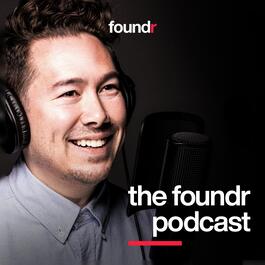
259: Taking on Google, with Gabriel Weinberg, Founder of Privacy Browser DuckDuckGo
Taking on Google Gabriel Weinberg has made it his mission to protect internet privacy, and his scrappy Google competitor DuckDuckGo is leading the charge. Everything we do online is tracked. Searching, browsing, shopping, even navigating. Most of us have grown accustomed to this. Although we may acknowledge now and then that it makes us uncomfortable, we haven’t changed our habits. Maybe we’ve become too reliant on our preferred online services for basic day-to-day tasks. Or maybe we don’t even know how we’d change our ways in the first place. This is a problem that Gabriel Weinberg has been helping people solve since 2008, when he first created privacy-focused search engine DuckDuckGo. While the company has been charging ahead ever since, Weinberg’s mission is on everyone’s mind these days. Concerns about internet privacy and data protection are at an all time high, following recurring scandals around tech companies leaving their users vulnerable. While still far smaller than industry leader you-know-who, DuckDuckGo’s popularity is surging, thanks to its commitments to never collecting personal information or tracking your activity to sell to advertisers. The search engine offers other services like informing the user of what tracking is being blocked, and now has a mobile privacy browser and desktop plugins. Since incorporating in 2008, DuckDuckGo has grown to a global company of 63 employees. As internet privacy has taken the spotlight, Weinberg’s been busy, writing and advocating for federal “do not track” legislation, and speaking up in the New York Times opinion page and other platforms. He’s also got a new book out that explores the power of mental models he’s relied upon during his career. But Weinberg’s core mission remains: to make it a lot easier for you to use the internet without being creeped on. The Start of DuckDuckGo DuckDuckGo is a search engine, but it’s also an internet privacy company that’s out to help you protect yourself online. “We like to say the internet shouldn't feel so creepy, and protecting your information should be as easy as closing the blinds,” Weinberg says. DuckDuckGo offers a variety of tools to help consumers achieve this privacy—and feel confident about it. The company started as a search engine and has since expanded to offer a browser for iOS and Android, along with extensions for desktop browsers. The company is 10 years in the making, but it wasn’t Weinberg’s first internet startup. After graduating from MIT in 2003, he created educational software that supported student achievement by using the internet to connect parents and teachers. Unfortunately, the software was developed about 15 years too early, and it fell flat. Next, Weinberg started a pre-Facebook social network that helped people find old friends and classmates. That fell apart in 2006, and DuckDuckGo followed soon after in 2007. The company incorporated in 2008 and officially launched at the end of that year. So, how has DuckDuckGo competed with giants like Google for over 10 years and lived to tell the tale? It’s a modern day David and Goliath story, although in this case David is growing bigger and stronger every day. Weinberg attributes a lot of DuckDuckGo’s success to his team. As he often tells other entrepreneurs, “If you're going to succeed, you're going to need an amazing team around you. Work on crafting the values and mission to attract a team... to reach your ambition.” The Power of Mental Models Weinberg also credits much of his success to years of dedicated research on mental models, which he’s recently turned into a book with his wife Lauren McCann, Super Thinking: The Big Book of Mental Models. “Mental models are concepts ... be a better strategic thinker,” Weinberg says. He encourages people to think of mental models like this: When you first learn arithmetic, you learn addition, then multiplication based on addition. If you didn’t advance to multiplication, you could still combine quantities using addition, but it would take you much, much longer. Mental models operate the same way. “Once you know something, you can think in a higher-order way really quickly,” Weinberg says. On the other hand, if you didn’t have a mental model, you’d have to start from scratch, every time. It’d be more difficult and time-consuming to make good decisions, repeatedly. When he started training the DuckDuckGo executive team, Weinberg realized a significant knowledge gap: His team didn’t recognize more than half the mental models he’d instructed them to learn and use. That’s how Weinberg and McCann, a statistician, came up with Super Thinking—when he realized his current training method was inefficient and no other resource would suffice. Through their research, they also realized that many of the mental models were related. Almost all 300 mental models in the book are existing concepts. Super Thinking simply collects and organizes them into main themes—nine, to be exact. The last two themes are called “Unlocking People's Potential” and “Flex Your Market Power,” and the mental models in these chapters apply to leadership, management, and other business best practices. “People are really different, and if you want to manage effectively, every person requires different characteristics,” he says. That’s why effective managers take the time to understand personality types and strengths, using questionnaires like Myers-Briggs and DiSC. One notable mental model is called Joy’s Law, which tells us that all of the smartest people already work for someone else. “This means that you can’t corral smart people,” Weinberg says. “Instead, if you arrange people in just the right way and give them jobs that fit , they can reach extraordinary success both as teams and individuals.” In their book, Weinberg and McCann explain that Joy’s Law also overlaps with mental models like 10x Teams and Resonant Frequency, the latter coming from physics. “A lot of mental models come from different disciplines,” Weinberg says. “The idea of mental models is to take a multidisciplinary approach—to take the best ideas from all different disciplines and combine them to use them for general strategic thinking.” To understand Resonant Frequency at work, imagine an opera singer breaking a glass by hitting just the right note. “The same happens with people; hitting the right frequency and absorbing energy from the right role and jobs,” Weinberg says. But just as a singer can’t break glass with every note they sing (it’s actually quite rare), a team can't operate at a resonant frequency at all times. So, how do you know when you’ve reached it with your team? You constantly shift around your team and test to see which combination produces the best output. That’s what Weinberg does at DuckDuckGo, where he doesn’t have a traditional management hierarchy. Instead, they’ve divided management responsibilities between positions and operate based on objectives and projects, and the team doesn’t hesitate to shuffle around when needed. ”We are constantly moving people around to fit what they're most interested in and best suited for... to achieve these 10X Teams,” Weinberg said. Gaining Traction for Growth Weinberg previously authored Traction, which serves as a scientific experimentation approach to marketing. In it, he systematically lists 19 different channels that companies can use to gain traction with their audiences. “My advice is to not leave anything out,” Weinberg says. “It’s often one of the unusual things might be the thing that actually works.” Over the last 10 years, DuckDuckGo has found that different stages of growth have required different marketing channels. In the early stages of growth, the team used social media, content marketing, and PR, but these channels eventually saw diminishing returns. Since then, the team has transitioned to organic, viral growth and offline word-of-mouth marketing. In the last nine months,DuckDuckGo has succeeded at brand marketing that has also raised market share. “I wrote some long-form articles on Quora on topics like why to use DuckDuckGo vs. Google, how tracking works, how to avoid it, and more,” Weinberg says. “These got such high engagement, more than anything else.” Since publishing the posts, Weinberg and his team have been working to promote that content on platforms like Quora and Reddit. As one of the first native advertisers on Quora, their posts have been promoted to over 150 million people per month. “It’s all about finding bigger audiences and putting content in front of them that's compelling and native to the platform,” Weinberg says. The team has made just seven Quora answers and has been promoting them to 100 million people. It’s not cheap, but it’s working, he says. What is DuckDuckGo’s traction like at this point? Since the DuckDuckGo engine doesn’t track unique users, they can only report on total searches, which is currently at over 1 billion each month. For a company competing in a search engine space that’s dominated by one player, that’s pretty astounding. A top 100 website, the engine is ranked #4 in most countries and #3 in Australia. “Some third party estimates say we’re at 50 million users per month, which would be about 40 million searches per day.” What’s Next for DuckDuckGo? How does a search engine that doesn’t track customer data make money? “Search is unique because Google still makes money off search without having to track much ,” Weinberg says. Instead, Google conducts contextual advertising, which displays ads based on what a user is searching (versus behavioral advertising which uses customer data to display ads). DuckDuckGo can do the same contextual advertising without having to track any data. Calculating customer lifetime value (LTV) isn’t as simple, though. “It’s is even more difficult because of the lack of tracking,” Weinberg says. Instead of relying on customer data, the company measures factors like brand awareness and market share. Through national surveys, DuckDuckGo asks users if they're familiar with the brand, how they heard about it, and if they associate it with privacy. Feedback is an important tool at DuckDuckGo. As they’ve expanded their product line, the team conducted primary research on privacy and people who are interested in privacy. “We ran different methodologies, national surveys, user tests, and diary studies,” Weinberg says. DuckDuckGo’s diary studies involved a small group of 12 to 15 people who adopted the product and kept a diary for a period of two weeks. The team would then check during those two weeks to see how the subjects were using, navigating, and feeling about the product. “We found that would use DuckDuckGo but then click off to other websites that can track,” Weinberg says. “They felt unprotected, and we realized search was only part of the solution.” This inspired the company’s latest release, DuckDuckGo Privacy Browser, including extensions for desktop that help block trackers and enforce greater encryption across the internet. “It’s all about encryption and education,” Weinberg says. “We’re trying to simplify privacy.” Interview by Nathan Chan, feature article reprinted from Foundr Magazine, by Allie Decker Key Takeaways A history of Weinberg’s early startups and side projects The birth of DuckDuckGo and its mission to make the internet less creepy Why Weinberg decided to write a book on mental models, and how he uses them on his own team to build better leaders Why DuckDuckGo eschews traditional management hierarchy The marketing strategies Weinberg used to help DuckDuckGo achieve viral, organic growth An overview of DuckDuckGo’s monetization strategies How DuckDuckGo used diary studies as a methodology to gather insights What’s on the horizon for DuckDuckGo Weinberg’s advice for entrepreneurs who are competing against behemoths in their market
From "The Foundr Podcast with Nathan Chan"




Comments
Add comment Feedback